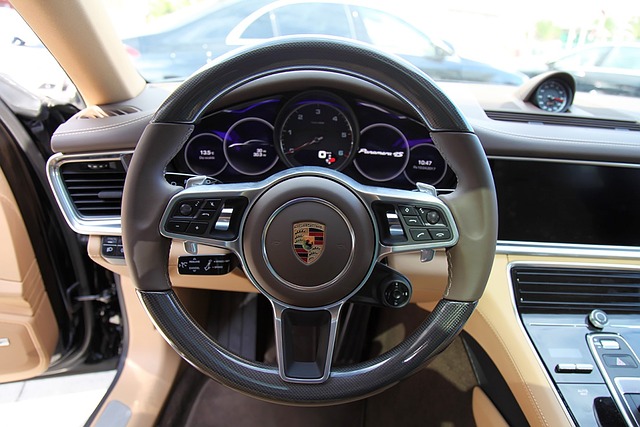How Can You Diagnose Strange Car Noises?

Imagine your car as a musical instrument. When something goes off, it produces an unexpected sound. For instance, if you hear a high-pitched squeal when you hit the brakes, it could mean your brake pads are worn out. They might be trying to get your attention before they completely give up. On the other hand, if you notice a rhythmic thump that gets louder as you accelerate, the issue could be with your tires or suspension system.
Then there’s that dreaded knocking noise from the engine, often compared to a drum being hit erratically. This could indicate a problem with the engine’s internal components or the fuel mixture. Similarly, a rattling noise when idling might suggest loose parts or an issue with your exhaust system.
Diagnosing these noises starts with a keen ear and a bit of detective work. Pay attention to when the noise occurs—does it happen when you brake, accelerate, or just idle? Knowing this can help pinpoint whether the issue is with the brakes, engine, or another component. Also, get familiar with the sound of your car when it’s running smoothly. This way, any deviation will be easier to identify.
In essence, treating these noises like clues can lead you to their sources, potentially saving you from costly repairs. So, next time your car starts speaking in strange sounds, listen closely. It might just be trying to tell you exactly what’s wrong.
Unraveling the Mystery: How to Diagnose Odd Car Noises Before They Wreak Havoc
First things first, listen closely. Different noises often point to different issues. A squealing sound could be a cry for help from your serpentine belt, while a grinding noise might be signaling trouble in your brake system. Think of it like your car is dropping hints about its health. If you’re hearing a clunking noise, it could be the suspension system begging for attention.
Next, pay attention to when the noise occurs. Is it while accelerating, braking, or turning? This detail is crucial. For instance, if you hear a chirping sound when you accelerate, it might be a loose belt. On the other hand, if the noise happens while braking, it’s often a sign that your brake pads are worn out.
Don’t forget to check under the hood. Sometimes, a quick visual inspection can reveal loose components or worn belts that could be causing the ruckus. Also, examining fluid levels can provide clues; low power steering fluid can result in whining noises when you turn the wheel.

Is Your Car Talking Back? A Guide to Identifying Unusual Engine Sounds
First off, let’s talk about those clunking noises. If your car’s engine sounds like it’s dropping marbles, you might be dealing with loose parts or a failing component. It’s as if the engine’s having a tantrum because something isn’t fitting just right. Then, there’s the high-pitched squeal. This could be a sign that your serpentine belt or timing belt is on its last legs. Imagine trying to have a conversation while someone’s blowing a whistle in your ear—annoying, right?
Next up, we’ve got the knocking sound. This is the engine’s way of saying it’s not happy with the quality of fuel or it’s having trouble with combustion. It’s like trying to have a meal with rocks in your food—definitely not smooth. And don’t ignore that rattling sound when you accelerate. This often points to an issue with your exhaust system or catalytic converter, like your car’s trying to clear its throat.
Lastly, if your engine’s humming like a tuning fork, it could mean the motor mounts are worn out. Imagine a phone vibrating on your desk—annoying but often ignored. Your car’s vibrations are its way of asking for some attention.
So, if your car starts making these noises, it’s definitely time to listen up. Each sound is a clue, and understanding them can help you address issues before they turn into big problems.
What That Strange Noise in Your Car Really Means: Expert Diagnosis Tips
First up, if you hear a squealing noise when you brake, it’s usually a sign that your brake pads are worn out. Think of it like a high-pitched cry for help from your car’s braking system. It’s crucial to address this promptly to avoid damaging the rotors.
Then there’s the rattling sound, which might be as disconcerting as a loose tooth. This could mean something’s loose under the hood, such as a heat shield or exhaust component. Ignoring it might lead to more serious issues down the road, so a quick check-up could save you a lot of trouble.
If your car is making a grinding noise when you shift gears, it could be a sign that your transmission is in trouble. Imagine trying to walk in shoes that don’t fit—your transmission feels the same way with worn-out or low-quality fluid. A professional should take a look to prevent more extensive damage.
A whirring or humming noise, especially when turning, might be an indicator of issues with your power steering. It’s like your car’s way of complaining about an overworked system. If the noise persists, it’s wise to have it checked out before it affects your steering control.
Listening to your car is like reading a book—it tells a story of what’s going on under the surface. Keeping an ear out for these noises and addressing them early can keep your car running smoothly and save you from bigger headaches later on.
From Rumbles to Squeaks: How to Pinpoint Your Car’s Weird Noises
Imagine your car as a musical instrument. Just as a violin might screech if the strings are out of tune, your car can emit different noises if something isn’t quite right under the hood. For instance, if you hear a rumbling noise, it could be the engine’s way of saying it’s not getting enough fuel or there might be a problem with the exhaust system. It’s akin to your violin’s bow being dragged across the strings too hard—something’s definitely off.
Now, consider that high-pitched squeak. It’s like a tiny mouse trapped in your engine bay. This could indicate a loose or worn-out serpentine belt. Think of it as the belt’s cry for help, desperately trying to maintain tension and keep all the moving parts in harmony.
What about those clunking sounds when you’re driving over bumps? It’s almost like your car is complaining about its suspension system. These noises can signal that your shock absorbers or struts are failing. They’re the car’s way of expressing discomfort, similar to how you might complain if you had to sit on a hard, uneven surface for too long.
Understanding these noises is key to maintaining your car’s health. Each sound is a clue, a piece of the puzzle that helps you diagnose what’s wrong before it turns into a costly repair. So next time your car starts its own symphony, listen carefully—it’s trying to tell you something important.
